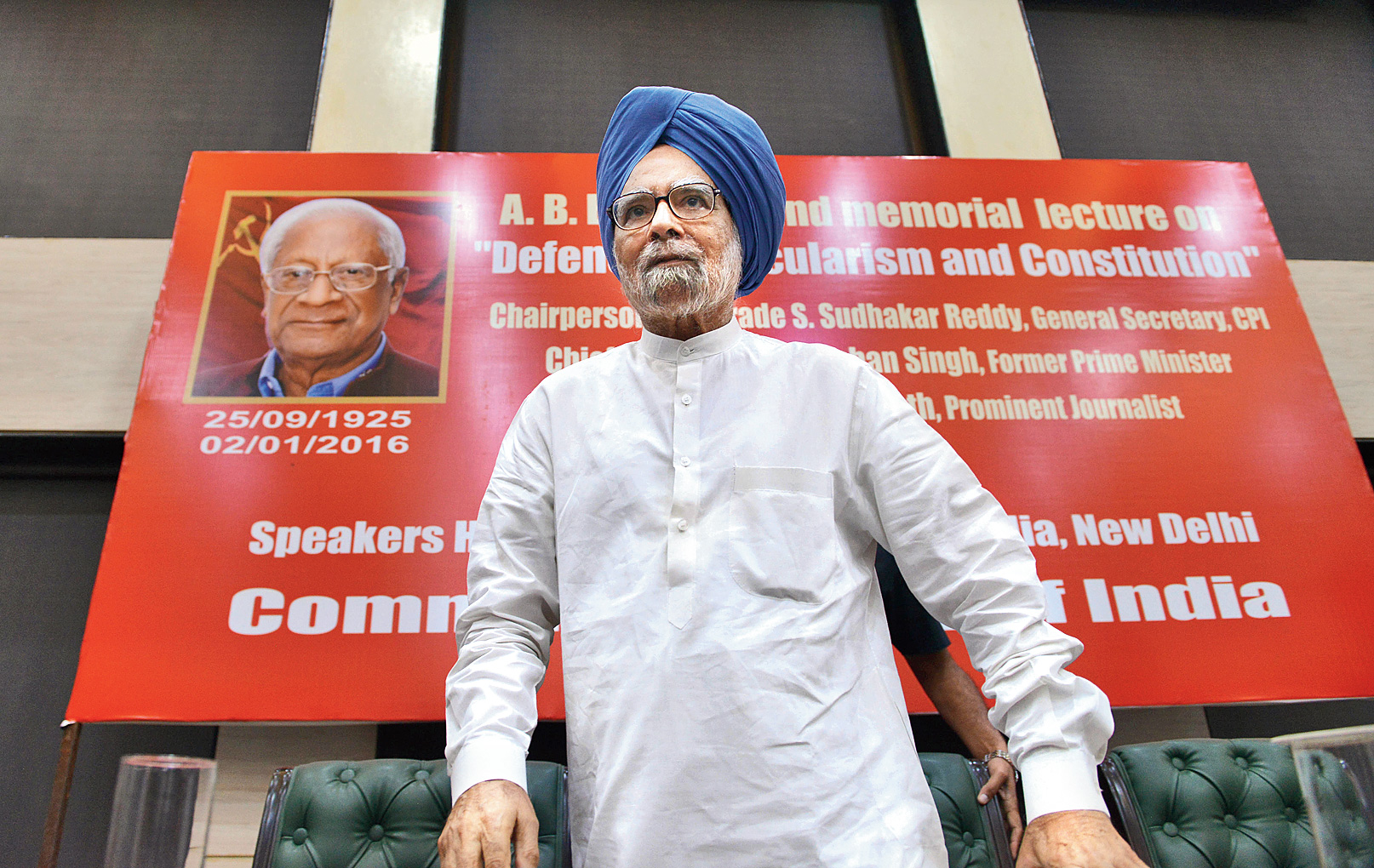Former Prime Minister Manmohan Singh on Tuesday underlined the importance of insulating the armed forces from any sectarian appeal and called for revisiting a 1996 Supreme Court judgment in which a judge had said “Hindutva is understood as a way of life”.
Hailing the armed forces as a “splendid embodiment of our secular project”, the Congress veteran said the three services had a glorious record of keeping away from politicians’ manipulations and intrigues.
The remarks assume significance in the light of persistent efforts by the Right wing to politicise the armed forces and their actions, including the surgical strikes on terror launch pads along the Line of Control on September 29, 2016.
“It is vitally important that the armed forces remain uncontaminated from any sectarian appeal,” Singh said while addressing a programme organised by the CPI in memory of former general secretary A.B. Bardhan on his birth anniversary.
The need to keep the armed forces away from politics was one of the issues Singh flagged as necessary to ensure the robustness of institutions in the larger interest of keeping the secular fabric of India intact.
“We should be unambiguously clear that any attempt to weaken the secular fabric of our republic would be an attempt to dismantle the larger egalitarian project — a secular, progressive democratic polity,” the former Prime Minister said.
Singh said the judiciary as an institution should never lose sight of its primary duty to protect the secular spirit of the Constitution, acknowledging how demanding the task had become with political disputes and electoral battles increasingly getting “over-laced with religious overtones, symbols, myths and prejudices”.
Referring to the “Hindutva judgment” of Justice J.S. Verma in 1996, the former Prime Minister said it had a decisive impact on the ongoing debate among political parties about the principles and practises of secularism.
“The judgment ended up making our political discourse somewhat lopsided, and many believe that ‘there can be no doubt that the decision requires to be overruled’.”
Singh also had a word for the Election Commission, which has a busy schedule ahead with a round of Assembly elections this year-end, and the Lok Sabha polls in the summer of 2019.
“As the custodian of the integrity of the electoral process, it is incumbent upon the Election Commission to see to it that religion and religious sentiments and prejudices do not get worked into the election discourse,” Singh said, advocating a rollback of the easy acceptance of over-manipulation of religious imagery.
Providing a historical perspective on why the framers of the Constitution chose secularism for the country, Singh said it was the result of two influences — global and domestic. The global influence was the brutality of World War II, “a war whose origin can primarily be traced to the ideology of Fascism and its ugly demands”.
Apart from the global aversion to Fascism and its violent assertion of one race over another and the naked use of aggression against minorities, the Partition violence made the founding fathers painfully conscious of the need to avoid the “trap of any kind of religious superiority in the constitutional scheme in the making”, Singh said.
Also, according to him, it is “grossly unfair” to the entire national leadership, including Mahatma Gandhi, Sardar Vallabhbhai Patel and Maulana Azad, to suggest that it was Jawaharlal Nehru alone who insisted on introducing the concept of the secular state in the Indian constitutional and political discourse.
All of them, Singh said, fully endorsed and shared Nehru’s secular ideas and formulations, and Gandhi paid the price for his steadfast commitment to a secular state.

